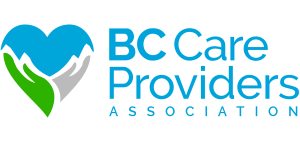Ready. Set. Vote!
The BC Care Providers Association (BCCPA) is pleased to announce that we have selected the top five motions & finalists that will compete to win the inaugural Care to Debate event taking place at the 40th Annual Conference in Whistler on May 30th. Now it’s up to BCCPA members and conference delegates to vote and narrow the field down to three finalists. The top three contenders will be invited on the main stage to make their case directly to the delegates as to why their motion should be chosen as the top pick this year.
“It all comes down to this,” says Daniel Fontaine, CEO for the BCCPA. “The field has been narrowed down to five motions, but now our members and delegates make the final decision as to who makes it into the top three. It will be interesting to see which topics makes the cut.”
A special online voting link has been sent to members & delegates and all ballots cast between now and April 30th will be tallied up to see who garnered the most votes. The BCCPA will announce prior to the conference who will be invited up on stage to participate in the inaugural Care to Debate.
“We’re hoping all of our members and conference delegates take the time to vote over the next couple of weeks,” says Fontaine. “This is a great way for everyone to actively participate in the conference and potentially help set the agenda for the BCCPA over the coming year.”
Register here for the conference in order to have your say as to who will make it to the final round. Or if you are already a service provider member, you can log in to M365 to vote.
Listed below are the top five finalists and their motions:
Topic: Facilitating Public-Private Partnerships to Reduce Caregiver Burden

Submitted by Daniel Wanis-Ruiz, Masters of Health Leadership Candidate
Motion:
Resolved that, a major city municipality create a management level position, entitled the Chief Policy Officer, to facilitate public private partnerships (PPP’s) that would be focused on reducing caregiver burden with the creation of Carers’ Policy within the workplace, or as a law at a city level.
Background:
The uncompensated work hours for informal caregivers could be one of the greatest economic opportunities to improve lives and create wealth across Canada. Keeping caregivers in the workplace decreases risk of caregiver burden, indirectly supports older adults in an aging population, and can increase the amount of economic taxation in British Columbia and Canada. The purpose of this brief is to mandate the creation of a municipal level government position, that has the authority to create public-private partnerships (PPP’s), policy, and networks with the one goal of implementation of carers’ policy in the workplace.
To review the submission in full, click here.
Topic: Emergency Management Planning in Continuing Care

Submitted by Gagan Lidhran, Simon Fraser University student
Motion:
Resolved that, the BCCPA advocate for the adoption of a Province-wide emergency management plan for Care Homes in BC. This will ensure that Care Homes are able to prevent, mitigate, prepare and respond to emergencies and disasters. As such, strategies for seniors in home care should also be considered as they lack assistance during a crisis (consider senior friendly communities). This can be promoted through a province wide standard for emergency response in senior care homes.
Background:
The purpose of this brief is to bring attention to the perceived and actual risks of disasters within British Columbia and implement a province-wide emergency management plan within Care Homes so as to protect the safety of seniors. Disasters can be things such as earthquakes, floods, influenza, wildfires, landslides and so forth. Disasters as defined by the Justice Institute of BC (JIBC) are social phenomenon that result when a hazard intersects with a vulnerable community in a way that exceeds their capacities to cope and/or respond and leads to serious safety, health and environmental issues. As seniors are a vulnerable population, more attention is required to develop emergency management tactics in care homes in order to prevent and mitigate risks that could be evident during an emergency or disaster.
To review the submission in full, click here.
Topic: Workplace Health and Safety as Core Competencies for Health Care Workers
Submitted by Jennifer Lyle, Executive Director of SafeCare BC
Motion:
Resolved that, clinical continuing care staff and operational leaders’ core competencies and knowledge in workplace health and safety be considered an integral part of their training, education, and evaluation as it pertains to their role in the continuing care sector.
Background:
The dominant strategy put forward to address this staffing crunch is to recruit more workers. However, this approach misses a critical fact: nearly a third of the Ministry’s 5-year target for care aides (265 full-time equivalents (FTEs) and 57 nursing positions in the continuing care sector are already filled by trained, experienced staff – but these staff are unavailable to work due to workplace injuries. If strategies were in place to effectively reduce time-loss workplace injuries in the continuing care sector, the sector could stand to gain the equivalent of 420 FTEs – in one year. SafeCare BC is proposing the following:
Clinical continuing care staff and operational leaders’ core competencies and knowledge in workplace health and safety be considered an integral part of their training, education, and evaluation as it pertains to their role in the continuing care sector. (Motion outlines six specific actions).
To review the submission in full, click here.
Topic: Integrating Standardized Electronic Medical Records into BC’s Continuing Care Sector

Motion:
Having a standardized Electronic Medial Record (EMR) solution that meets the needs of the whole interdisciplinary care team provides an infrastructure on which many of the key issues within residential care can be addressed.
Background:
Having a standardized EMR solution that meets the needs of the whole interdisciplinary care team provides an infrastructure on which many of the key issues within residential care can be addressed. Efficient and effective communication across interdisciplinary care teams is essential when providing care and support for individuals with multiple conditions and complex care needs. Members of these care teams who provide support across facilities at present are faced with everything from full paper charting, phone calls, and faxes to anytime anywhere digital access to a fulsome EMR. This disparity not only leads to inefficiencies but challenges with providing appropriate, timely, patient focused care. The move towards a standardized EMR solution will positively impact and help address issues with recruitment and retention, after-hours care, transfer of care, & interdisciplinary team based care.
Further information forthcoming.
Topic: Expanding Responsibility for Quality of Life Programming in Seniors Care
Motion:
Be it resolved that quality of life programming for BC seniors accessing publicly funded residential care or home care should not be the sole responsibility of the Ministry of Health;
Be it further resolved that the BCCPA should advocate that other BC Ministries become actively engaged in funding quality of life programs.
Background:
Quality of life programming and services available to BC seniors accessing publicly funded residential care or home care is generally the responsibility of the Ministry of Health. Quality of life programming is competing with direct care delivery for limited Health Authority dollars. As a result, it tends to fall behind in terms as an overall investment of funds – as it is not seen as the actual provision of health care by the Ministry of Health tasked with supporting it. While improving staffing levels, including Direct Care Hours, improves seniors care over the long term, further initiatives need to be undertaken to improve the overall quality of life for seniors including those living in residential care, assisted living and receiving home care. We know that many of the chronic conditions of our elders cannot be cured and that quality of life, rather than the medical condition of seniors living in residential care, may have a greater impact on their overall level of satisfaction.
To review the submission in full, click here.








